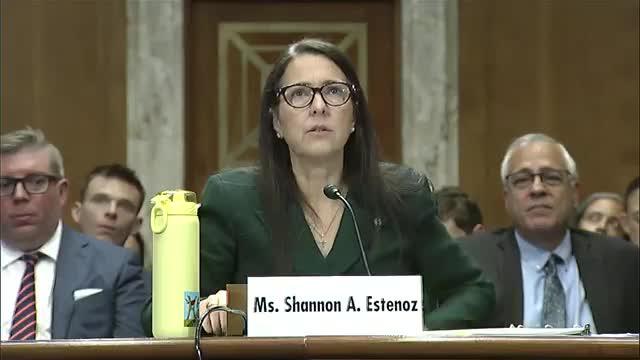Senator questions administration's energy strategy amid climate crisis
July 10, 2024 | Energy and Natural Resources: Senate Committee, Standing Committees - House & Senate, Congressional Hearings Compilation

This article was created by AI summarizing key points discussed. AI makes mistakes, so for full details and context, please refer to the video of the full meeting. Please report any errors so we can fix them. Report an error »

During a recent government meeting, discussions centered on the administration's approach to energy policy, particularly regarding the transition to clean energy and the ongoing role of oil and gas production. A nominee for the position of deputy secretary emphasized the administration's commitment to addressing the climate crisis and lowering greenhouse gas emissions, while acknowledging that oil and gas will remain part of the energy mix for the foreseeable future.
The nominee highlighted the significant energy demands anticipated in the coming years, driven by advancements in artificial intelligence, the electrification of vehicles, and the growth of cryptocurrency. Citing a recent hearing, they noted that the U.S. may need to expand its energy grid substantially—comparable to adding an entire California—to meet these demands. In contrast, they expressed concern that the current administration may not be adequately prepared to compete with countries like China, which is aggressively securing energy resources for its own technological advancements.
The meeting also addressed the administration's leasing practices for oil and gas production. The nominee pointed out that the Department of the Interior has leased significantly less onshore acreage for oil and gas production compared to previous administrations, including the Obama administration. This reduction has raised questions among lawmakers about whether the department is on the right path regarding energy leasing policies.
The nominee acknowledged the ongoing debate surrounding these issues and expressed a willingness to engage with differing perspectives if confirmed. They reiterated the administration's confidence in its energy strategy, despite the evident disagreements among stakeholders.
The nominee highlighted the significant energy demands anticipated in the coming years, driven by advancements in artificial intelligence, the electrification of vehicles, and the growth of cryptocurrency. Citing a recent hearing, they noted that the U.S. may need to expand its energy grid substantially—comparable to adding an entire California—to meet these demands. In contrast, they expressed concern that the current administration may not be adequately prepared to compete with countries like China, which is aggressively securing energy resources for its own technological advancements.
The meeting also addressed the administration's leasing practices for oil and gas production. The nominee pointed out that the Department of the Interior has leased significantly less onshore acreage for oil and gas production compared to previous administrations, including the Obama administration. This reduction has raised questions among lawmakers about whether the department is on the right path regarding energy leasing policies.
The nominee acknowledged the ongoing debate surrounding these issues and expressed a willingness to engage with differing perspectives if confirmed. They reiterated the administration's confidence in its energy strategy, despite the evident disagreements among stakeholders.
View full meeting
This article is based on a recent meeting—watch the full video and explore the complete transcript for deeper insights into the discussion.
View full meeting